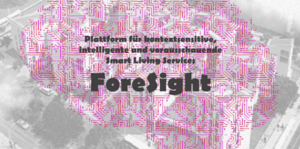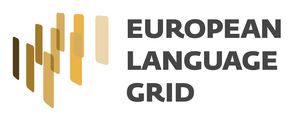
Research Departments
- AI in Medical Image and Signal Processing 1
- Agents and Simulated Reality 14
- Augmented Vision 6
- Cognitive Assistants 10
- Cooperative and Autonomous Systems 1
- Cyber-Physical Systems 17
- Design Research eXplorations 5
- Embedded Intelligence 3
- Innovative Factory Systems 2
- Institute for Information Systems 2
- Intelligent Networks 3
- Interactive Machine Learning 1
- Multilinguality and Language Technology 1
- Robotics Innovation Center 5
- Smart Data & Knowledge Services 1
- Smart Enterprise Engineering 4
- Smart Service Engineering 1
- Speech and Language Technology 2
Research Topics
- Autonomous Systems 20
- Data Management & Analysis 10
- Human-Machine Interaction 25
- IT Security 8
- Image Recognition & Understanding 5
- Language & Text Understanding 7
- Machine Learning & Deep Learning 25
- Other 18
- Robotics 14
- Sensors & Networks 27
- Virtual & Augmented Reality 5
Fields of application
- Environment & Energy 17
- Farming & Agricultural Technology 6
- Financial Sector 2
- Health & Medicine 25
- Industrie 4.0 15
- Knowledge & Business Intelligence 1
- Learning & Education 7
- Mobility 15
- Other 17
- Smart Home & Assisted Living
- Trade & Logistics 9
Displaying results 41 to 50 of 54.
Research Departments
- AI in Medical Image and Signal Processing 1
- Agents and Simulated Reality 14
- Augmented Vision 6
- Cognitive Assistants 10
- Cooperative and Autonomous Systems 1
- Cyber-Physical Systems 17
- Design Research eXplorations 5
- Embedded Intelligence 3
- Innovative Factory Systems 2
- Institute for Information Systems 2
- Intelligent Networks 3
- Interactive Machine Learning 1
- Multilinguality and Language Technology 1
- Robotics Innovation Center 5
- Smart Data & Knowledge Services 1
- Smart Enterprise Engineering 4
- Smart Service Engineering 1
- Speech and Language Technology 2
Research Topics
- Autonomous Systems 20
- Data Management & Analysis 10
- Human-Machine Interaction 25
- IT Security 8
- Image Recognition & Understanding 5
- Language & Text Understanding 7
- Machine Learning & Deep Learning 25
- Other 18
- Robotics 14
- Sensors & Networks 27
- Virtual & Augmented Reality 5
Fields of application
- Environment & Energy 17
- Farming & Agricultural Technology 6
- Financial Sector 2
- Health & Medicine 25
- Industrie 4.0 15
- Knowledge & Business Intelligence 1
- Learning & Education 7
- Mobility 15
- Other 17
- Smart Home & Assisted Living
- Trade & Logistics 9








